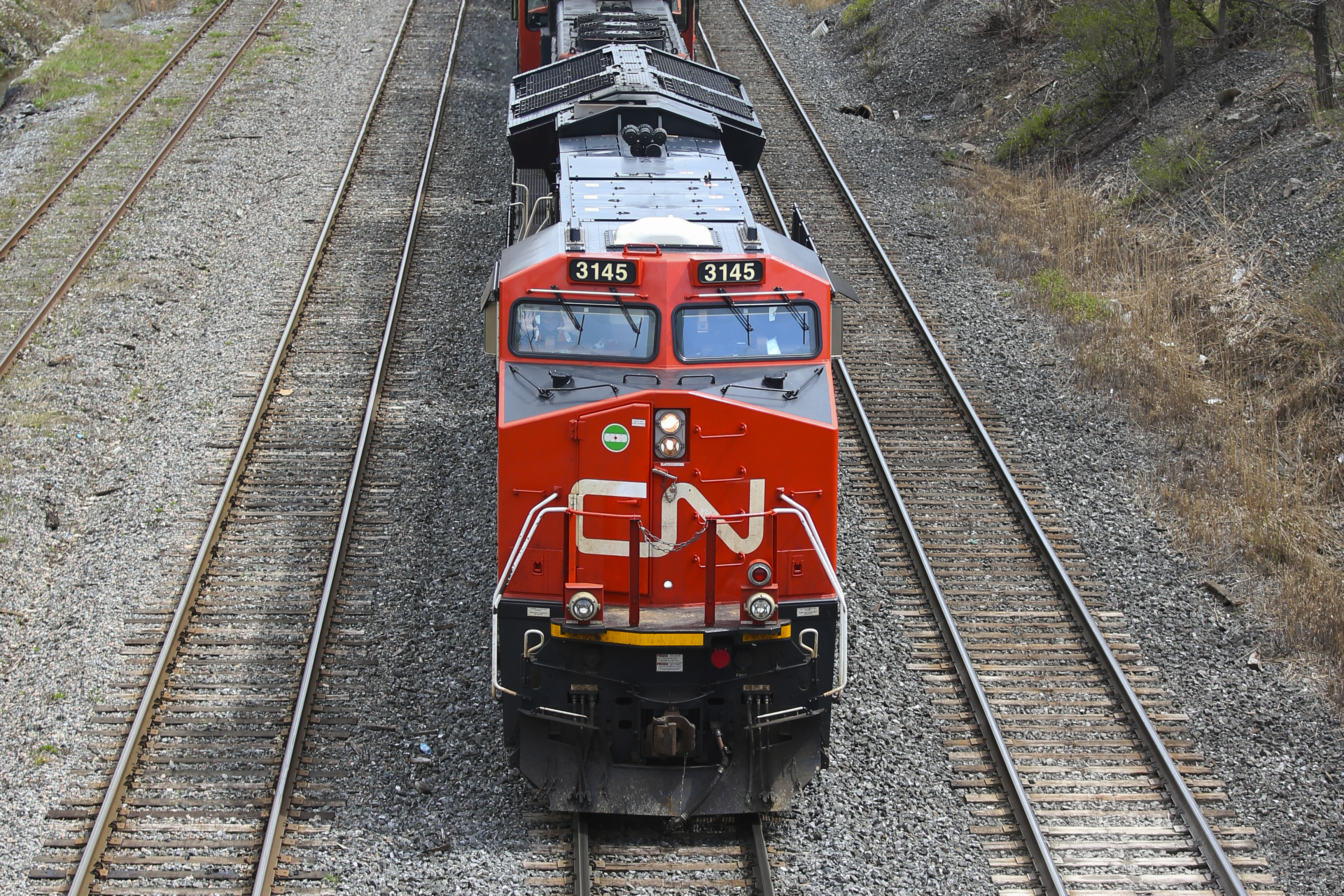
Visit Our Sponsors |
|
|
|
|
|
|
|
|
|
|
|
|
|
|
|
|
|
|
|
|
|
|
|
|
|
|
|
|
|
|
|
|
|
|
|
|
|
|

Rail workers demanding more rest time moved closer to a strike that would disrupt supply chains from Halifax to Vancouver and down through the Midwest to the Gulf of Mexico.
A union representing more than 9,000 employees at Canadian National Railway Co. and Canadian Pacific Kansas City Ltd. said workers overwhelmingly voted in favor of job action to push the companies to include provisions to combat crew fatigue in their collective agreements.
The strike would start as early as May 22 if no deal is reached. It would interrupt transport of products — including cars, coal, consumer goods, fertilizer, grains, minerals and petroleum — as well as commuter services, which are run by the affected conductors, locomotive engineers, yard workers and rail traffic controllers.
“The simultaneous work stoppage at both CN and CPKC would disrupt supply chains on a scale Canada has likely never experienced,” Paul Boucher, president of the Teamsters Canada Rail Conference, said at a news conference on May 1 in Ottawa.
Boucher said the union will go back to the bargaining table and “do everything in our power to reach a fair deal for our members.”
The two rail giants account for nearly 90% of the industry’s revenues and more than three-quarters of overall tonnage carried by the sector.
Both companies said they’re working to reach a deal to avoid a work stoppage and warned that a strike would have an impact beyond the Canadian border.
“It would disrupt essential supply chains throughout North America, and significantly constrain trade between Canada and the U.S. and Mexico,” Canadian Pacific said in a statement on May 1. Passenger rail services on its network in Montreal, Toronto and Vancouver will also be “unable to operate.”
Canadian National said it “maintains a cautious outlook regarding possibility of finalizing a deal before a labor disruption that would affect the Canadian supply chain, the North American economy and our employees.”
Both companies’ share prices continued to slide on May 1, with CN Rail down 0.2% on the day, while Canadian Pacific had fallen about 0.1% as of 3 p.m. in Ottawa.
Canadian Pacific said it has made two offers to union leadership, both of which provided significant benefits, wage increases and full compliance with regulatory requirements for rest. “They do not in any way compromise safety. To say or suggest otherwise is false,” the company said.
Canadian National said the union rejected an offer based on an hourly rate and scheduling that included wage boosts, scheduled consecutive days off, provisions for no layoffs and reduced hours away from home.
Boucher said in an interview that the union demands and offers from the companies “are extremely far apart” on rest time, but declined to discuss wage issues.
“We want to bargain. We want to get a negotiated agreement prior to May 22, and the ball’s in the courts of the companies. We did not want to go down this road.”
The parties now begin a mandatory 21-day period of mediation with federal mediators.
Transport Minister Pablo Rodriguez said the Canadian government was concerned and urged the parties to negotiate in good faith. “The best deals are made around the table,” he told reporters.
There’s a lot on the line not only for Canada, but across the continent, added Labor Minister Seamus O’Regan.
“The ramifications of it are not lost on me. This is something I’ve been keeping my eye on for months and months and months,” he said.
“But right now, cool heads prevail. And you know, we’ve got good people there that are helping them reach that deal.”
RELATED CONTENT
RELATED VIDEOS
Timely, incisive articles delivered directly to your inbox.

